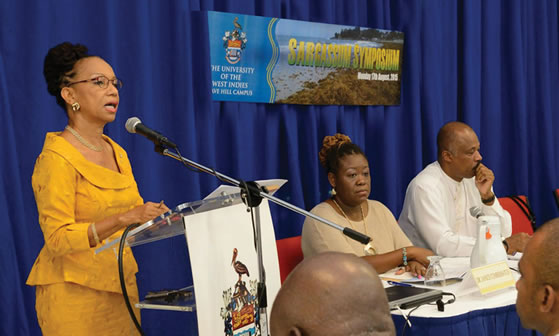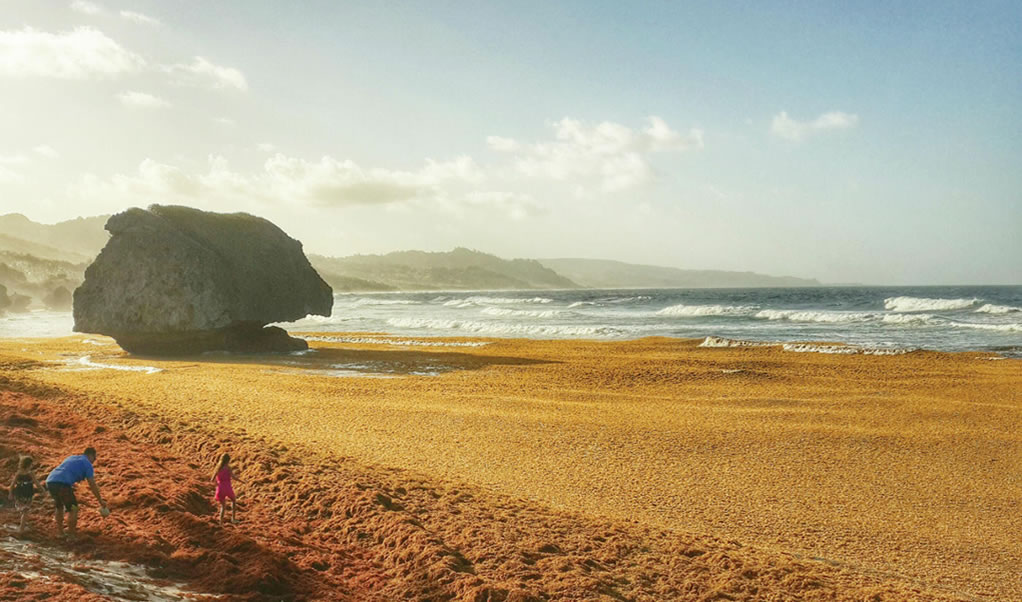
Sargassum, a thick, vine-like seaweed for which the Sargasso Sea is named, has developed something of an infamous reputation, from the time of Columbus and other 15th century explorers. Since then, the seaweed, which can form dense “mats” on the surface of the ocean, has garnered fantastical and somewhat menacing references in film, music, and literature (see Jean Rhys' bold retake of "Jane Eyre" in the novel "Wide Sargasso Sea").
In reality though, Sargassum offers food and safe habitats for marine species, including sea turtles. Sargassum can even support healthy beach ecosystems and strengthen dunes that protect coastal areas from storms. However, due to climate change, large-scale deforestation, and increased erosion leading to spikes in nutrients like nitrogen and phosphorus in the world’s oceans, Sargassum growth has reached unprecedented levels. In the Caribbean, the seaweed has been taking over beaches, damaging coral reefs and fisheries, and posing a threat to all those whose livelihood depends on the sea.
So, in August 2015, The UWI Cave Hill Campus hosted a Sargassum Symposium, that brought together scientists from across the University, with key stakeholders in Caribbean tourism, business, and fisheries, to address the Sargassum invasion. Rather than simply assessing the threat posed to tourism and marine life, the symposium took a new perspective – exploring innovative uses for the seaweed that could reduce its environmental impact, while reaping economic benefits for local communities.
Members of the public and private sectors shared Sargassum’s potential as an organic fertilizer and feed for livestock, as well as a number of product prototypes under development, ranging from soap and flour, to plywood and biomass pellets. The symposium launched a repository of information for researchers, entrepreneurs and developers interested in these and other Sargassum-related initiatives. The University of West Indies is working to secure funding for further research and development of this rich field – transforming our ‘Sargasso seas’ from threat to treasure. To learn more, visit http://www.sargassum-at-cermes.com/.
In the Caribbean, the seaweed has been taking over beaches, damaging coral reefs and fisheries, and posing a threat to all those whose livelihood depends on the sea.
Vice-Chancellor Sir Hilary Beckles
 Vice-Chancellor and Principal Professor V. Eudine Barriteau delivering Opening Remarks at the Sargassum Symposium.
Vice-Chancellor and Principal Professor V. Eudine Barriteau delivering Opening Remarks at the Sargassum Symposium.
 Sargassum on a beach in Barbados. Photo credit: Romel Hall.
Sargassum on a beach in Barbados. Photo credit: Romel Hall.